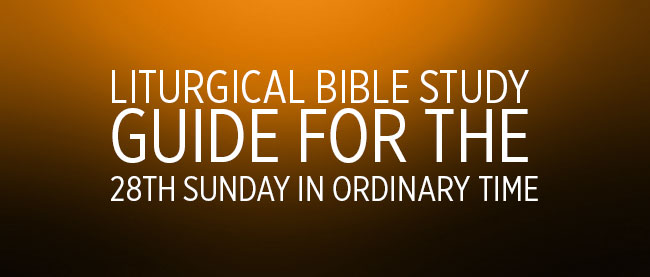1st Reading – Isaiah 25:6-10a
The first twelve verses of the 25th chapter of Isaiah are psalms (songs) of thanksgiving and prayer. The first of these psalms (verses 1 through 5) is a hymn to Yahweh for safe refuge. It celebrates the victory of Yahweh as something that has already taken place. The third (the last half of verse 10 through verse 12) is a hymn about Yahweh’s victory over Moab. Moab is the only enemy of Israel mentioned by name in Chapters 24 through 27. The Moabites are descendants of Moab, the eldest son of Lot, who was conceived in incest (Genesis 19:37). The land of Moab was Israel’s neighbor across the Dead Sea. Moab had been a longtime adversary, being remembered for having summoned Balaam to curse Israel (Numbers 22-24) and for having oppressed Israel (Judges 3:12-20). Conquered by David, Moab regained its independence after Ahab’s death.
Sandwiched between these two hymns is our first reading for today. It tells of the banquet on Mount Zion to celebrate the divine kingship.
2nd Reading – Philippians 4:12-14, 19-20
Today we complete our study of St. Paul’s letter to the Philippians. In this reading, part of Paul’s closing statements, he expresses his gratitude for the aid the Philippians have sent and for their concern toward him.
Gospel – Matthew 22:1-14
Recall that Jesus is in Jerusalem for his passion. He has made His triumphal entry and has upset the religious leaders. He is speaking to them in parables about His mission and by whose authority He has been able to do what He has done and is to do. The parable we hear today summarizes the long history of God’s dealings with man – a series of invitations to a life of the spirit – and portrays man’s response to these invitations to share in the messianic blessings. Quite invariably men preferred a life geared to a visible and tangible reality than one which they could not experience except in the spirit. Tragically real in most of its details, this parable was pronounced in the Temple on the Wednesday of the first Holy Week, almost in the shadow of Calvary. The lesson was for the proud Pharisees, who still had not grasped the idea that they were not indispensable to God’s plan of redemption for all men.


